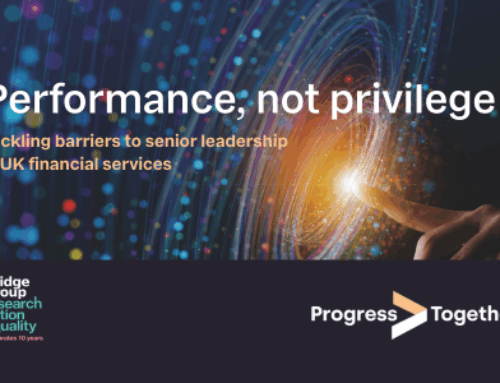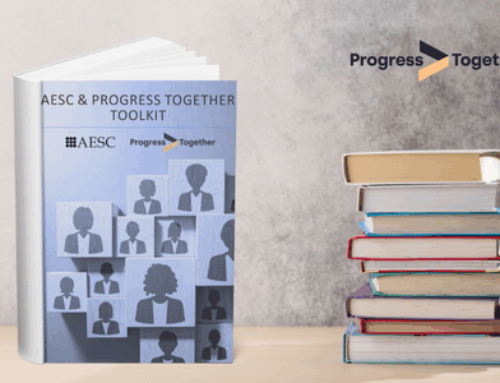Senior leaders from across the UK financial services sector gathered at the Bank of England on Wednesday, 1 October for the launch of the 2025 Progress Together Data Report, produced in collaboration with the Bridge Group – the world’s largest study of socio-economic diversity in the industry.
The conversation went far beyond numbers, exploring how leadership, evidence, and technology together shape the future of a sector at a pivotal moment.
Evidence speaks
The dataset covers over 210,000 employees across 40 firms, representing a third of the UK financial services workforce. It paints a picture of progress, but also of stubborn inequality. At senior levels, representation of employees from less-advantaged backgrounds has risen slightly to 27%, still trailing the 39% seen in the wider UK workforce. London lags behind other regions, and those facing overlapping disadvantages linked to gender, ethnicity, and background face the steepest barriers.
“Progress is happening, but far too slowly,” noted one participant. “Without structural change and accountability, systemic barriers will continue to stall talent and blunt competitiveness.”
Need for visible leadership
Discussions made clear that socio-economic diversity cannot be treated as a box-ticking exercise. Leaders emphasized the importance of embedding inclusion into promotions, stretch assignments, and learning opportunities that shape careers. The right language and framing also matters: terms like “lower” and “higher” socio-economic background carry unintended judgements, but clarity in data is essential.
“Without visible leadership, data is just numbers. With leadership, it becomes a mandate for change,” a CEO observed.
The consensus: socio-economic inclusion should be seen as a performance driver, not just a fairness exercise. It is about resilience, innovation, and competitiveness, not compliance.
AI risks creating a two-tier workforce
A major theme of the discussion was the impact of artificial intelligence. While AI can broaden talent pools and unlock innovation, participants warned that it could also deepen divides. If technology outpaces investment in people, the sector risks creating a two-tier workforce: some empowered by new tools and skills, others excluded.
“The UK cannot afford to become technologically advanced but socially fragile. AI is not a technical upgrade, it is a people strategy,” one expert said.
Top takeaways from the senior leaders discussion:
- Strengthen data disclosure and apply insights consistently.
- Focus on progression, not just recruitment.
- Pair data with stories that inspire and create human connection.
- Treat AI as a people strategy to avoid widening divides.
- Lead visibly – socio-economic diversity belongs at the top table of business strategy.
Why it matters
These barriers are not just about individuals; they affect consumer outcomes, regional growth, innovation, and decision-making. The roundtable concluded with a clear challenge: financial services must act decisively to embed socio-economic diversity and harness untapped talent.
“Socio-economic diversity is not about compliance. It is about competitiveness. Performance, not privilege, must be the organising principle of our sector,” said one participant.
Join the Movement
Don’t let privilege dictate the future of UK financial services
The evidence is clear: when leadership is drawn from too narrow a pool, financial services risks wasted talent, weaker innovation, and slower regional growth. AI-driven disruption will only amplify these gaps if action is delayed. The time to act is now.
Progress Together invites firms, leaders, and policymakers to join us in making socio-economic inclusion a central driver of performance. By committing to transparency, accountability, and inclusive progression, organisations can unlock talent, strengthen competitiveness, and ensure the UK’s financial services sector delivers for all communities.
Join the conversation, share best practice, and help turn evidence into impact. Together, we can ensure leadership reflects the society we serve – unlocking talent, driving innovation, and building a financial services sector fit for the future.




